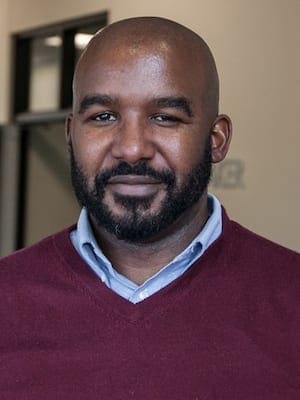It seems like the list of groups for the church to consider supporting in the 21st century continues to grow.
We are regularly reminded that we have a responsibility to care for widows and orphans, for the earth and the environment, for local and foreign missionaries, for those who still suffer through the plight of slavery and sexual trafficking, and even our four-legged companions.
I want to suggest that there is one more group that the church has an obligation to actively care for and nurture. That group is urban youth.
Urban youth have instant – and oftentimes wrong – assessments made about their personal and spiritual value. This not only occurs in general society, but also happens within the church.
Urban youth are not only turned away from employment and educational opportunities because they don’t conform to societal norms, they’re also turned away from the church because they do not always conform to traditionally held standards of dress and conduct.
This sentiment is reflected in the lyrics of the song “Church Clothes” written and performed by Lecrae, an urban Christian hip-hop artist: “I walk in church with a snapback and they tell me that’s a no-no?”
A snapback is a style of baseball hat that is similar to a 70s trucker hat and is currently popular with urban youth.
Within society, the church and contemporary Christian culture, urban youth are judged by external criteria that do not take into account their spiritual potential or their ability to be and do more than what is expected of them by society.
In contrast to generally held assumptions about urban youth, there is a spiritual revival of sorts that is occurring in the cities and suburbs of America that is being led by a new hip-hop rap generation.
Urban artists and preachers like Lecrae, J’Son, Flame, Thi’sl and Ken Petty, to name only a few, are leading a new wave of believers who don’t wear khakis or button-down shirts or carry a leather-bound Bible.
Instead, they wear fitted baseball hats, over-sized T-shirts, Nikes and read their Bibles on their smartphones. Most important, they love Jehovah and Jesus with all their hearts.
They perform and produce records based on how their life experiences have been changed by having a relationship with Jesus and experiencing the filling of the Holy Spirit, and challenge other people to do the same.
They speak with thick slang, walk with pants that sag and wear hats that don’t sit completely on their heads – all the while extolling the blessings of spiritual gifts, self-discipline and the positive experiences of fellowshipping with kindred believers.
They memorize Scripture, love their families, share their faith on a regular basis and lead church plants that are reaching an unchurched generation in forgotten cities.
The men and women of this new generation are not saints. Many of them come from broken backgrounds that include gang violence, run-ins with law enforcement and other questionable behavior.
Yet, they celebrate the redemption that they have received in Christ, just as other people do.
So, what is the church’s responsibility to this segment of society that does not fit into a traditional church mold?
- We have to imitate Christ’s practice of welcoming those whom society has attempted to cast away and separate.
- Remember that when Christ offered salvation to someone, he offered it to them unconditionally. He did not assign prerequisites to the opportunity to be restored to full relationship with God. Instead, he said come just as you are.
- We have to recognize and address our own prejudices against people who are different from us.
- Recognize that God is capable of using anyone to proclaim the grace of the gospel.
- Listen to them in order to gain an understanding of how they communicate – especially how God has changed them and how they hope to cooperate with God in changing the world.
In doing these things, you may learn that there is more common ground between you and them. As Lecrae says, “We are all products of grace spreading hope to the hopeless.”
Terrell Carter is currently interim pastor at Webster Groves Baptist Church and director of the Foundations in Ministry program for Central Baptist Theological Seminary in St. Louis.
A pastor, author and educator living in St. Louis, Missouri, he is the author of several books, including The Gospel According to Broadway and Taking Apart Bootstrap Theology: Gospel of Generosity and Justice.

